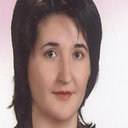The contributing factors to poor sleep experiences in according to the university students: A cross-sectional study.
Parole chiave
Astratto
BACKGROUND
Sleep problems among university students are common; however, the contributing factors to poor sleep experiences are still unclear. The purpose of this study is to examine the contributing factors to poor sleep experiences in university students.
METHODS
The study was cross-sectional, and the students completed self-report, anonymous questionnaires provided during an in-class survey. This is a single center study. A descriptive survey was conducted randomly on 256 university students in Turkey. The instruments for data collection consisted of the demographic data, and the contributing factors to poor sleep.
RESULTS
The most frequent self-reported cause to poor sleep experiences in according to the university students were exposure psychological problems (67.2%), stress (64.8%), exposure to tobacco smoke in the sleeping room (63,7%), pain (62,9%), having family problems (62,5%), being patient (55,1%), air quality of the room (55,1%), strenuous physical activity (53,9%), fatigue (53,5%), sadness (53,1%), noise that caused by other people in the room (52.0%), room scents (sweat, perfume, humidity, naphthalene, etc.) (53.1%), depression (51, 6 %), anxiety, and tension (51, 1%).
CONCLUSIONS
Students should be encouraged to solve psychological problems, to suitable stress-relieving measures, to follow sleep hygiene practice and adequate time management for academic and social activities.



